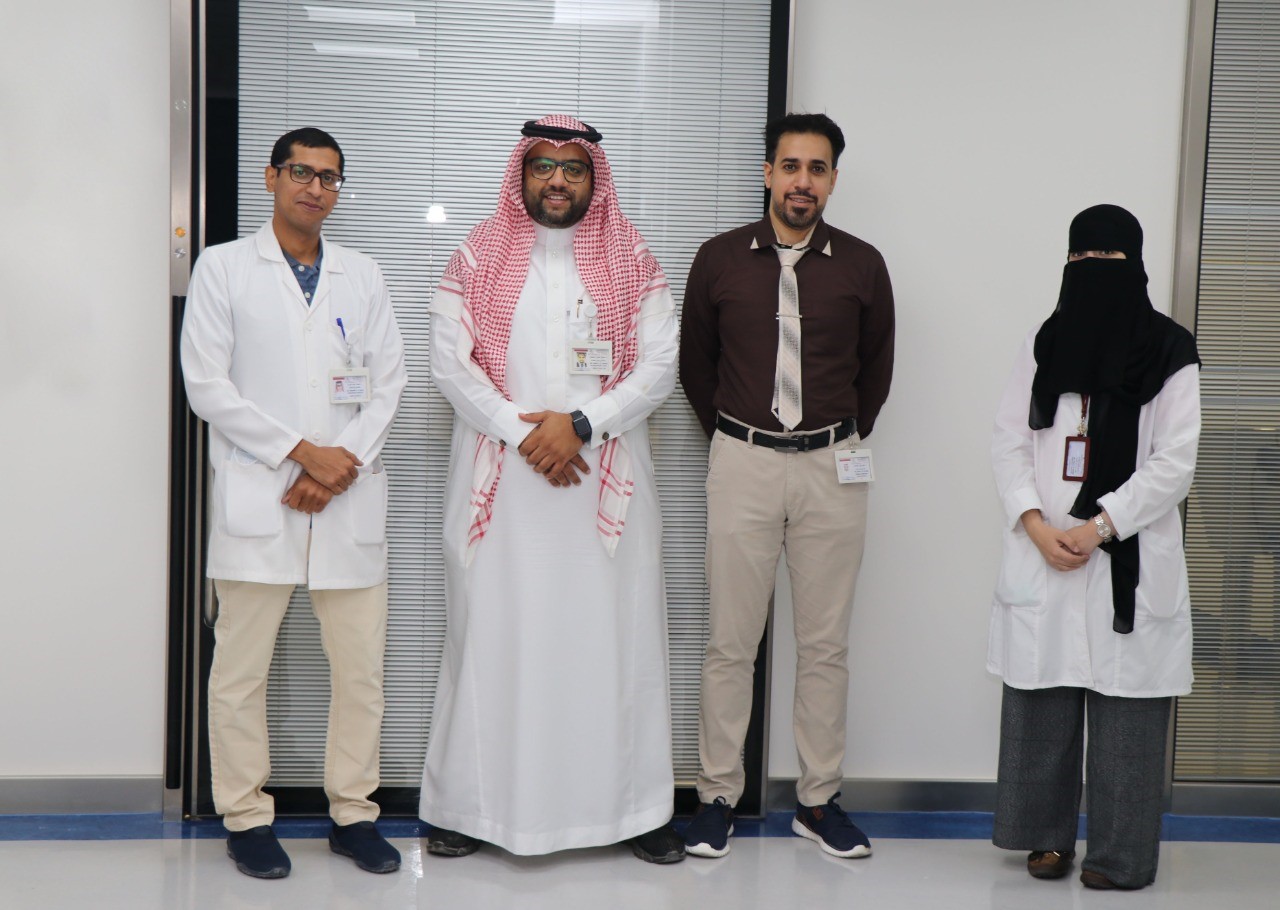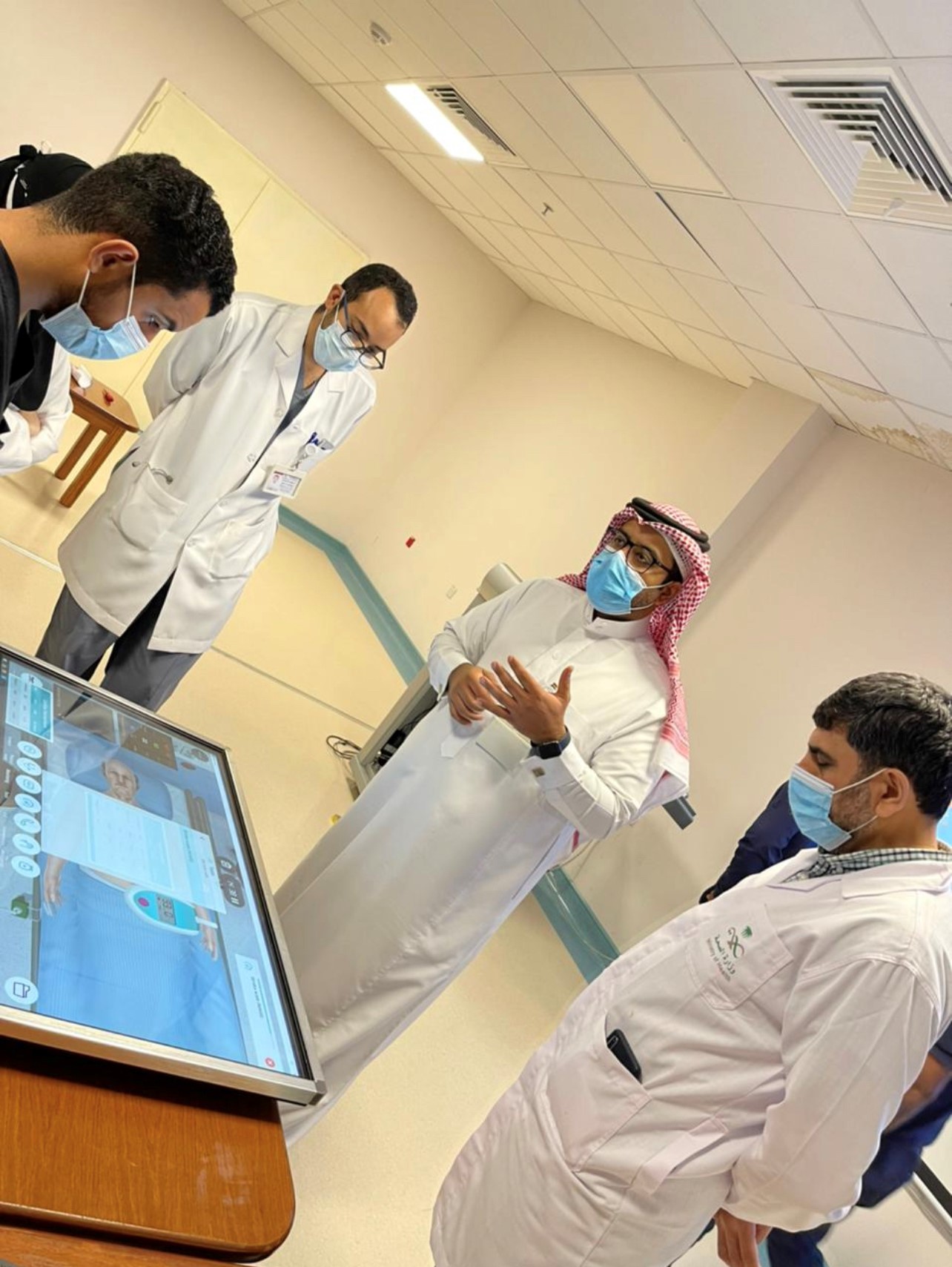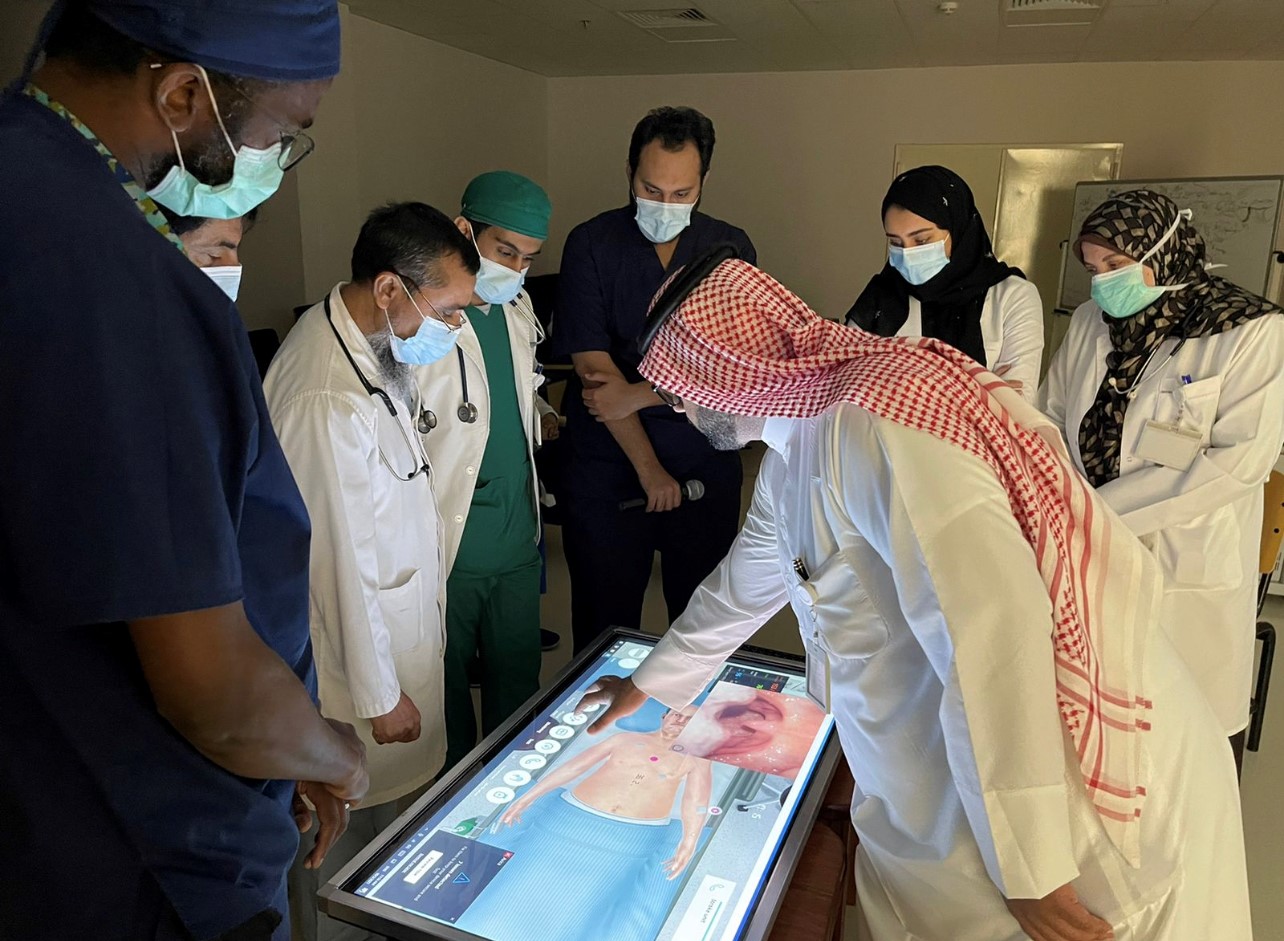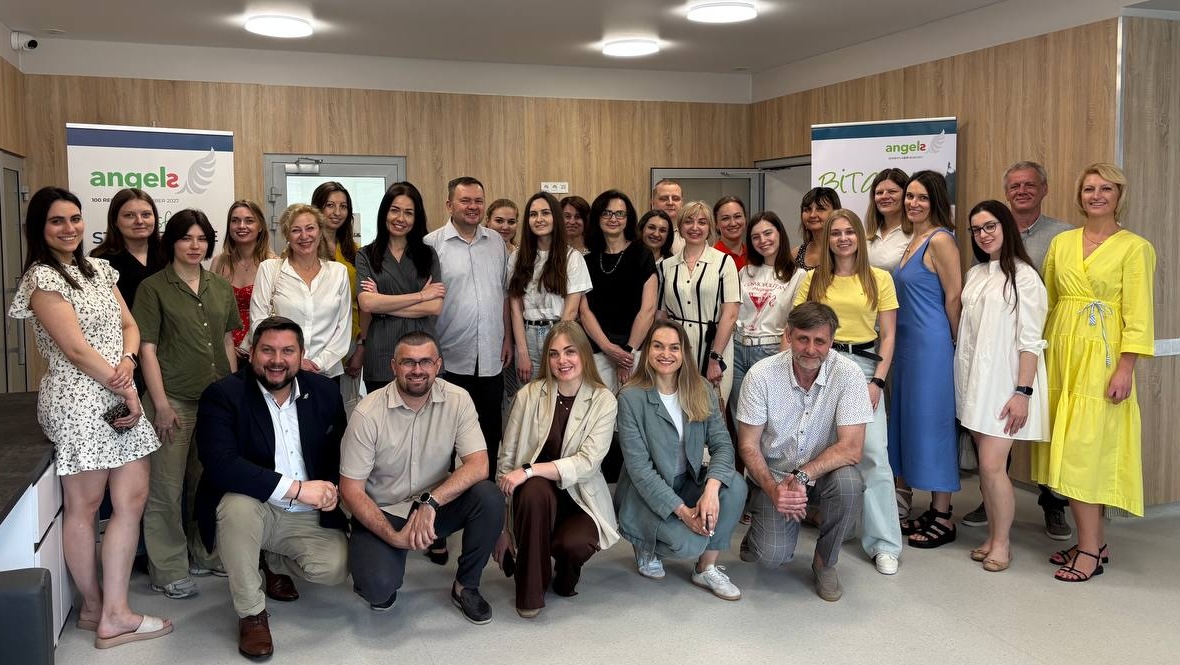
Czytelnik powinien wiedzieć z wyprzedzeniem o historia udar mózgu w szpitalu King Fahad Hospital Hofuf, znajdującym się w mieście Al-Ahsa, z wyprzedzeniem.
Pierwsze to, że to główne miasto w Al-Ahsa Oasis w wschodniej prowincji Arabii Saudyjskiej jest domem bliskiej społeczności, w której ludzie troszczą się o dobro siebie nawzajem, tak jakby nawet byli krewnymi i przyjaciółmi. To dobre poczucie wspólnoty jest najlepszym wyjaśnieniem niezwykłych zmian w leczenie udaru, które miały miejsce w tym szpitalu w ciągu ostatnich trzech lat.
Po drugie, oddział neurologia w Szpitalu King Fahad jest prowadzony przez lekarza, który kieruje tą samą troską dla innych i który dodatkowo jest pasjonatem i optymistycznym mężczyzną, mającym, innymi słowy, wszystkie cechy potrzebne do rewolucji.
Niedługo po powrocie tego lekarza ze stypendium w zakresie profilaktyki udar i otępienia na uniwersytecie Zachodnim w Kanadzie zdecydował się założyć oddział lecznia udarów w swoim szpitalu. W tym celu dr Sadiq Alsalman początkowo był całkiem sam. Wielospecjalistyczny szpital referencyjny z 500 łóżkami, Szpital King Fahad, jednak nie posiadał dedykowanych łóżek dla pacjentów z udar, nie posiada protokołu ostry udar mózgu i nie posiada wyszkolonego personelu, który dzielił się swoim wzrokiem. Nie było też jednego innego szpitala publicznego w największym województwie Arabii Saudyjskiej, gdzie pacjenci z udar mogli otrzymać opiekę w nagłych przypadkach.
Jednak w kraju, w którym według publikacji z marca 2021 r. w czasopiśmie Saudi Pharmaceutical Journal częstość występowania udar mózgu wzrasta, a śmiertelność spodziewana do 2030 r., dr Sadiq czuł się zmuszona do poprawy leczenie udaru dla ponad czterech milionów mieszkańców regionu. Do tego przedsięwzięcia wkrótce dołączył dr Mohammed Alhazzaa, neurolog udarowyudar, który dołączył do oddziału w trzecim kwartale 2021 r., a Sherif Ali, konsultant Angels, opiekujący się optymalizacją leczenie udaru w regionie wschodnim.

Program warsztatów wdrożono w 2021 r. W ramach programu były warsztaty symulacja dla szpitalny oddział ratunkowy, dwa warsztaty dla pielęgniarek i cztery dotyczące Saudyjskiego urzędu ds. Czerwonego Półksiężyca, towarzystwa humanitarnego, które świadczy usługi ratunkowy ratunkowego dla dużych części kraju. Pod koniec programu łącznie 500 uczestników otrzymało instrukcje dotyczące postępowania w ostry udar mózgu, a cenne powiązania między szpitalny oddział ratunkowy, pielęgniarkami i czerwonym półpaścem. Dziewięć łóżek dostępnych dla pacjentów z udar i w pełni wyszkolony zespół do późna 2021 r. Szpital King Fahad jest gotowy na zaoferowanie pacjentom z udar z Al-Ahsa drugiej szansy na życie.

Jeden z takich pacjent wpłynął na ten nowy zespół udarowy bardziej niż jakikolwiek inny. Przy wyniku w skali Skala oceny udaru mózgu NIH wynoszącym 18 po przybyciu, u tego pacjent występowało wysokie ryzyko zgonu lub ciężkiej niepełnosprawność. Jednak w ciągu kilku godzin od leczenia tromboliza pacjent wrócił na stopy, a w czasie ocena 0 w zmodyfikowanej skali Rankina potwierdzi, że nie ma objaw.
W najgorszym dniu jego pomocy życiowej pochodziły od osób w jego bezpośrednim kole. Lekarz lekarz ratunkowy ratunkowego w szpitalu King Fahad, który przebył poważny udar mózgu, należał do jego życia i zdrowia, aby szybko podjąć działania swoich współpracowników oraz do decyzji dr Sadiq o przekształceniu szpitala w placówkę leczenia udar.
zespół udarowy w szpitalu King Fahad ma ogromną dumę, z której może być dumny, włączając w to wskaźnik rekanalizacja powyżej 10% oraz średni czas oczekiwania między przybyciem do szpitala a podaniem leku do mniej niż 55 minut po podjęciu decyzji o leczeniu podczas TK. Niecały rok po aktywacji kodu udar wprowadzili już usługę trombektomii – z pomocą zewnętrznego neurolog interwencyjnego na razie, ale z planem dedykowanego zespołu trombektomii do przyszłego roku.
Ich sukces to z pewnością owoc odwagi i determinacji. Ale jeśli zapytasz, co naprawdę galwanizowanej poprawy leczenie udaru mózgu w szpitalu King Fahad, to jeden pacjent to wszystko zmienił. W społeczności, która dba nawet o obcych, jakby byli rodziną, prawdziwym punktem zwrotnym dla tego zespół udarowy był moment, w którym życie uratowało ich życie.



